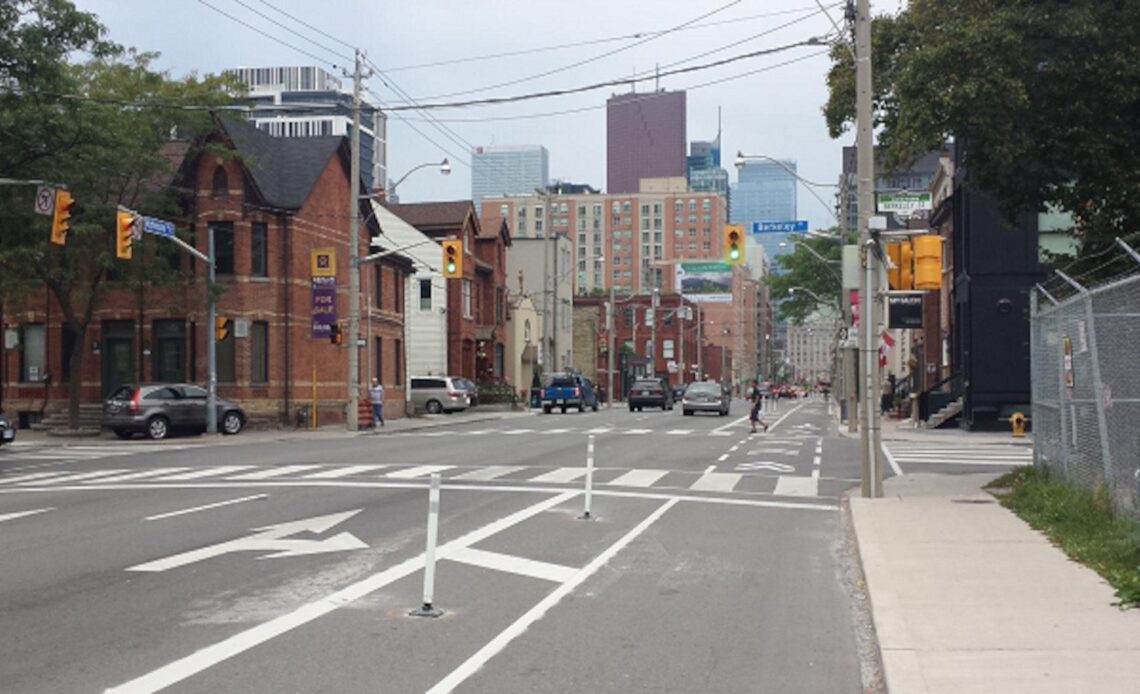A Toronto organization wants mayoral candidates to make killing off bike lanes part of their campaign. Keep Toronto Moving claims that, “a significant proportion of Toronto residents report being negatively affected by the increase in dedicated bike lanes in Toronto.” This goes counter to data released by the city that shows that bike lane usage has increased dramatically, with little or no increases to congestion.
Toronto bike lane pilot data: Cycling increases, slight rise in motorist trip time
A similar group, BeRationalTO opposed making the Yonge Street bike lanes permanent. Something that the city ultimately approved. The group claimed that emergency services were hindered by the bike lanes.
Toronto bike lanes are a good thing, not bad
Toronto cycling advocate Robin Richardson, debunked this in an interview with BlogTO. “Their baseless claim that EMS and fire department response times have gone up and have been debunked repeatedly,” she said. “The chiefs of both services deputed at IEC last year to state that response times have not increased since the bike lanes and cafés went in, and in fact, this area has the fastest emergency response times in the whole city.”
A group called “Keep Toronto Moving” wants to remove bike lanes on Bloor, Danforth, University and other routes. They’re out this morning with a poll done by Navigator (N=501, online) claiming a majority want bike lanes off major streets. https://t.co/HrBd7zHJxM
— Matt Elliott (@GraphicMatt) April 20, 2023
“Ill-conceived bike lanes endanger cyclists and pedestrians. They hurt retailers and restaurants. They transform once-quiet residential streets into congested feeder routes between major thoroughfares, which themselves become gridlocked no-go zones,”the group claims on its website.
Bike infrastructure makes for a better city
Richardson says that the new bike lanes may take time for motorists to adjust to, but it’s a good thing.
“It is human nature to be uncomfortable with change, and I think that’s what we are seeing here,” Richardson said. “Toronto has spent decades prioritizing motor vehicle travel, and as a result most people think of driving as the default and believe ‘roads should be for cars.’ But as the city grows, with more people living close to downtown, many residents do not own cars. That means choosing instead to walk, cycle or take transit to get where they need to go. Everyone should be proud of the progress Toronto has made…
Click Here to Read the Full Original Article at Canadian Cycling Magazine…

